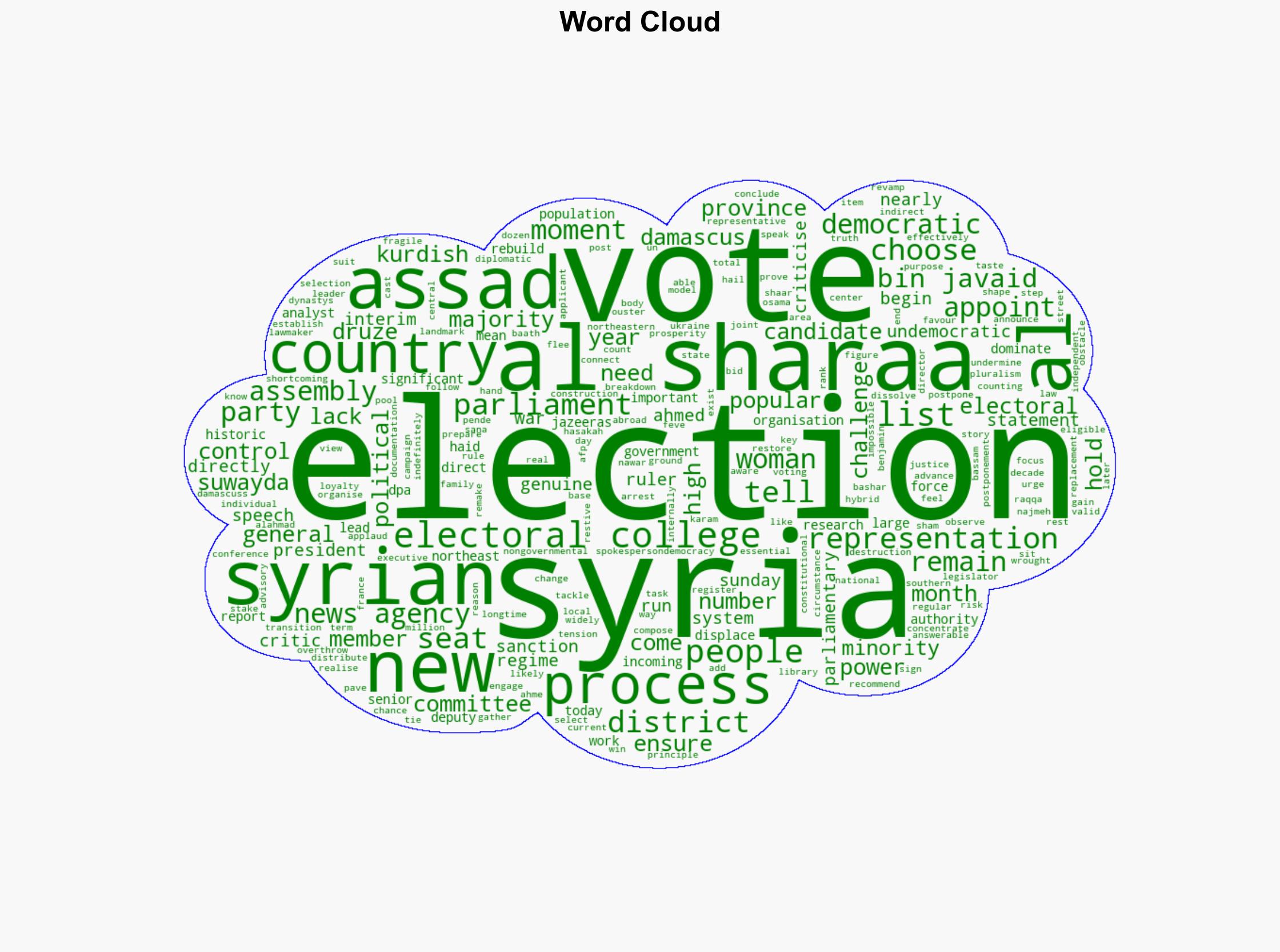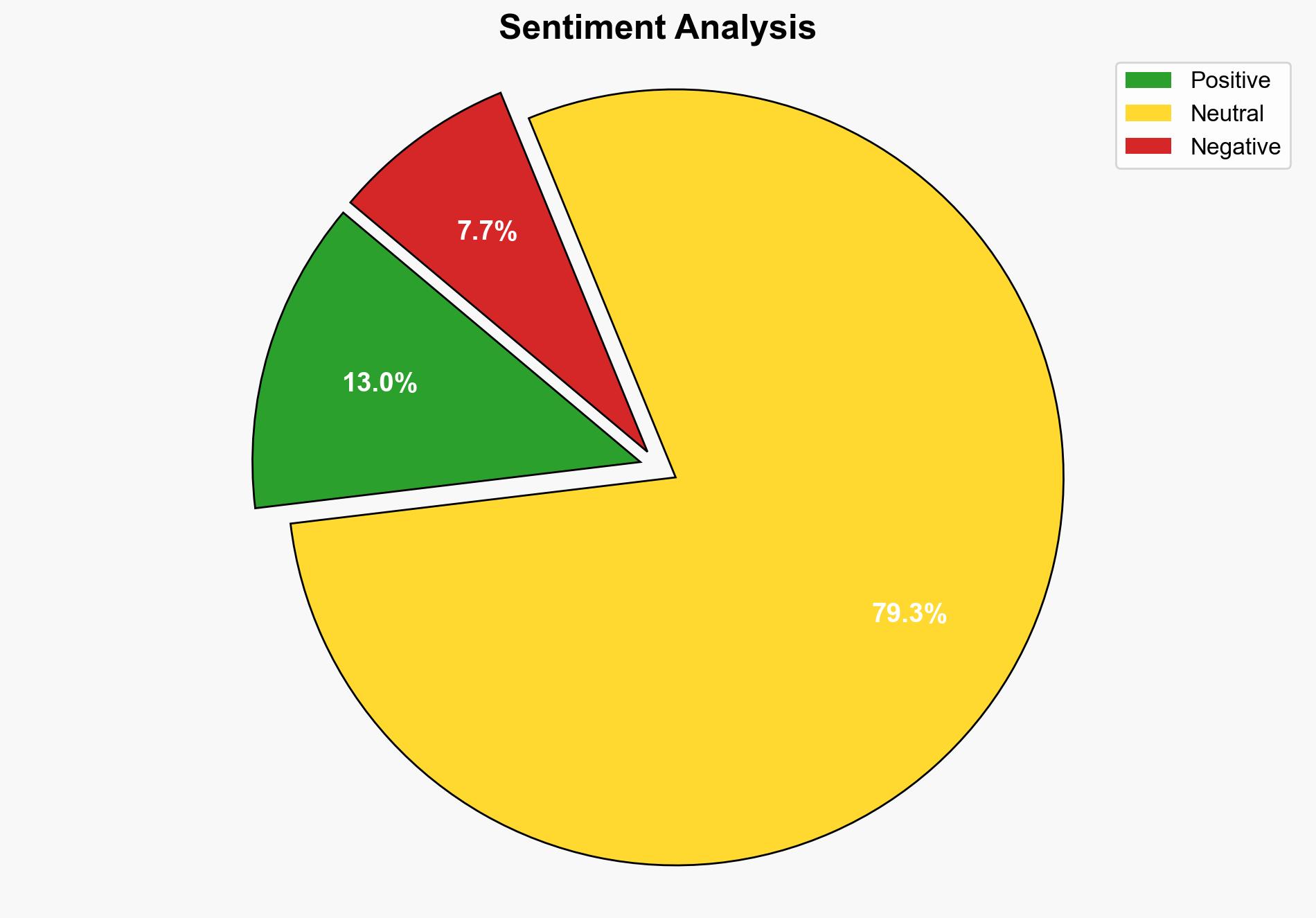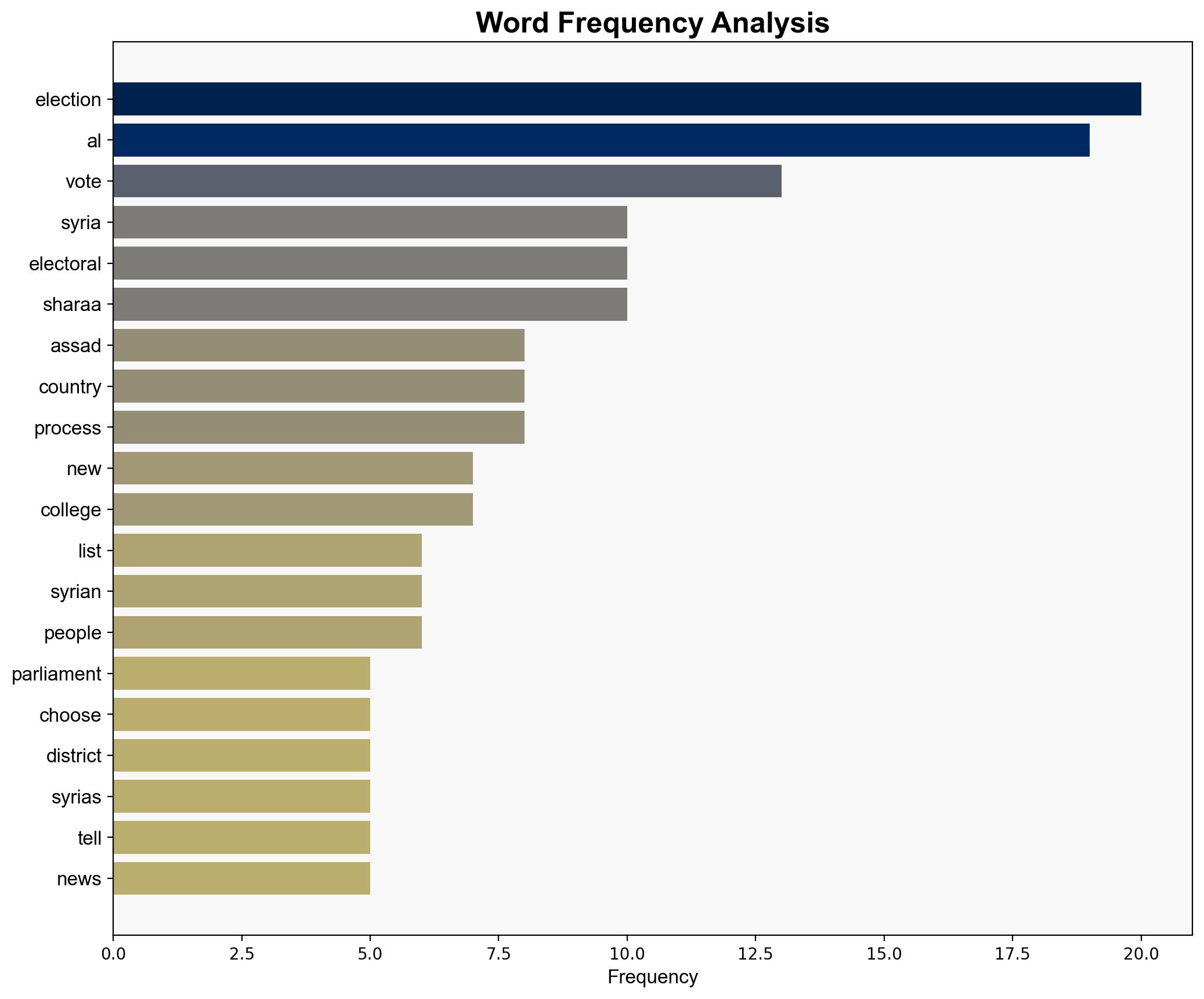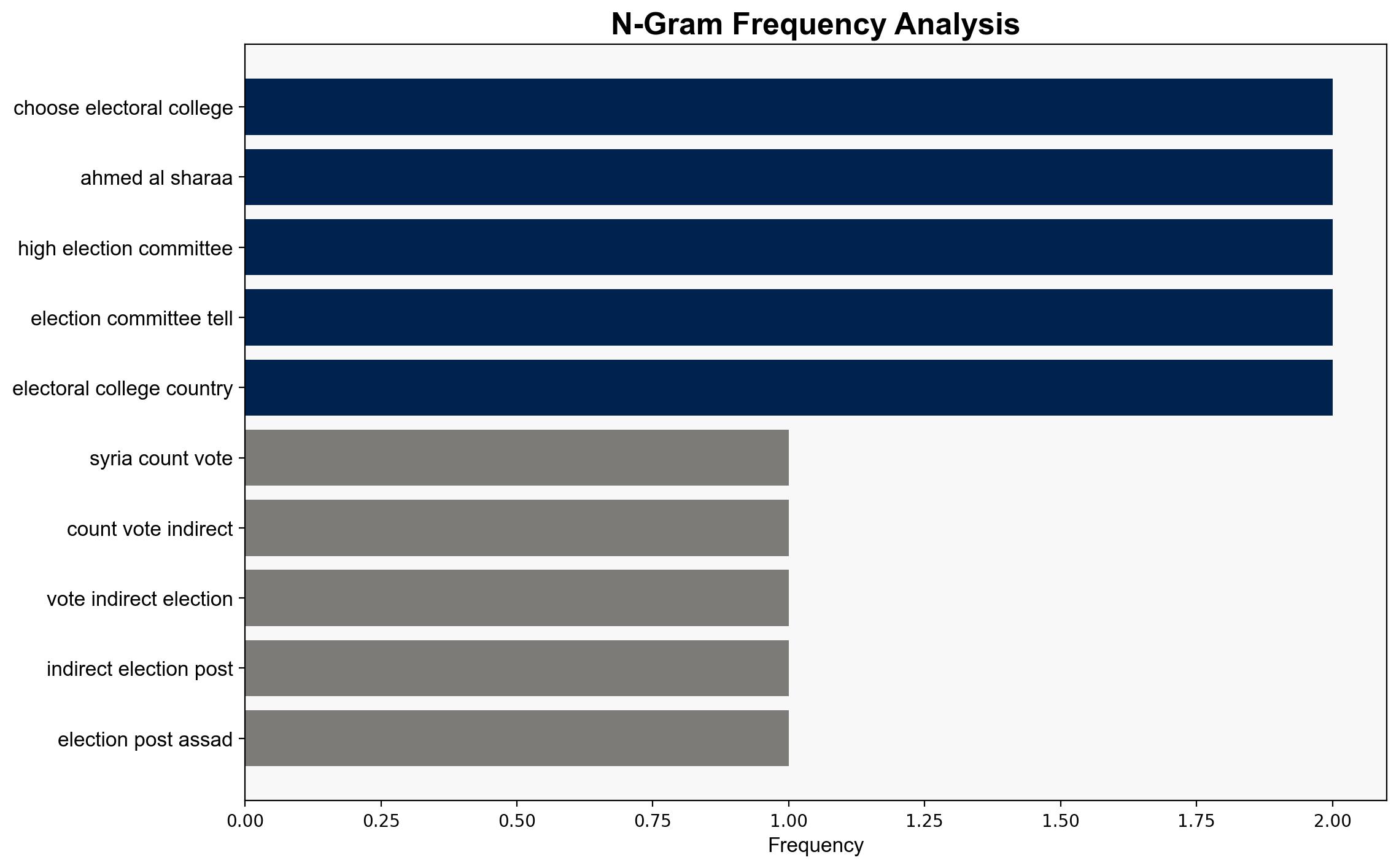Syrian electors vote in indirect polls for first post-Assad parliament – Al Jazeera English
Published on: 2025-10-05
Intelligence Report: Syrian electors vote in indirect polls for first post-Assad parliament – Al Jazeera English
1. BLUF (Bottom Line Up Front)
The Syrian indirect electoral process, marking a shift from the Assad era, is fraught with challenges and skepticism. The most supported hypothesis suggests that the elections are a strategic maneuver by interim leadership to consolidate power rather than a genuine democratic transition. Confidence in this assessment is moderate due to limited transparency and potential biases in available information. Recommended action includes monitoring the political developments closely and engaging with regional stakeholders to support a genuine democratic process.
2. Competing Hypotheses
1. **Hypothesis A:** The elections represent a genuine attempt at democratic transition in Syria, aiming to establish a more representative government post-Assad.
2. **Hypothesis B:** The elections are primarily a strategic move by interim leadership to consolidate power and maintain control under the guise of democratic reform.
Using ACH 2.0, Hypothesis B is better supported. The process’s lack of direct public voting, the appointment of loyalists, and criticism from NGOs suggest a controlled political environment rather than a genuine democratic shift.
3. Key Assumptions and Red Flags
– Assumptions for Hypothesis A include belief in the interim leadership’s commitment to democratic principles and the ability of the electoral process to reflect public will.
– Assumptions for Hypothesis B include skepticism about the leadership’s intentions and the influence of external actors.
– Red flags include the postponement of elections in certain regions, potential manipulation of electoral outcomes, and the lack of transparency in the electoral process.
4. Implications and Strategic Risks
– **Political Risks:** Potential for increased internal dissent and unrest if the public perceives the elections as illegitimate.
– **Geopolitical Risks:** Regional instability could be exacerbated, affecting neighboring countries and international relations.
– **Economic Risks:** Continued political instability may deter foreign investment and aid, hindering economic recovery.
– **Psychological Risks:** Public disillusionment with the political process could lead to decreased civic engagement and increased radicalization.
5. Recommendations and Outlook
- Engage with international organizations to ensure election monitoring and transparency.
- Support dialogue between Syrian factions to foster inclusive political processes.
- Scenario Projections:
- **Best Case:** Genuine democratic reforms lead to stable governance and economic recovery.
- **Worst Case:** Consolidation of power by interim leadership leads to increased authoritarianism and civil unrest.
- **Most Likely:** Partial reforms with limited impact on power structures, maintaining a fragile status quo.
6. Key Individuals and Entities
– Ahmed al Sharaa
– Nawar Najmeh
– Bassam Alahmad
7. Thematic Tags
national security threats, regional focus, democratic transition, political stability




